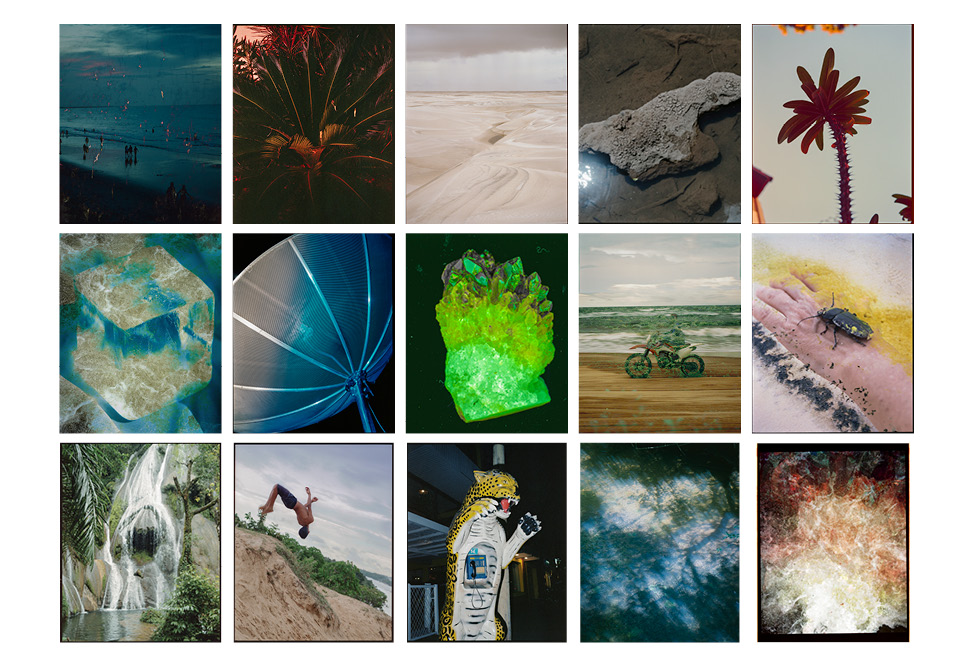User:Alecioferrari/Visible Forces: Difference between revisions
No edit summary |
|||
| (8 intermediate revisions by the same user not shown) | |||
| Line 36: | Line 36: | ||
[[File:vf_wiki.jpg|1]] | |||
===BIBLIOGRAPHY=== | ===BIBLIOGRAPHY=== | ||
Latest revision as of 17:28, 17 March 2021
VISIBLE FORCES
ABSTRACT
Visible Forces (2019 – 2020) is a visual essay that investigates the distinction between nature and culture, its evolution and further consequences.
If a bird builds a nest it’s a part of nature, but if a man builds a house it is beyond nature's definition; however, none of them is born spontaneously. Indeed, they are both results of a very elaborated construction process.
The aim of the body of work is to examine the moment of transition of a natural environment into a cultural heritage either by their application or existence in tangible outcomes such as buildings, language, works of art, historical artefacts and objects of cultural value, as well as in the natural heritage generated by the geological and industrial structures.
The series uses photography, digital scan as well as computer generated visuals as methods to explore and expand the boundaries of reality creating a sort of fictional narrative based on factual events.
ESSAY
In the allegory of Prometheus, he steals the divine fire to allow man to consciously advance on the path of spiritual evolution, thus transforming the most perfected of animals on earth into a potential god, making him free to 'conquer the kingdom of heaven with the power' (Secret Doctrine II, 244)
According to the myth, men without fire regress, returning devourers of raw meat: assimilated to predators or wild animals, bringing them back to a primordial state. In this case, Prometheus by stealing the fire from the Gods and delivering it to men, allows him to differentiate from animals, and to take power over rules, food and the environment. Following the Greek mythology, from this moment onward, nature detaches itself from the cultural component All modern anthropology is built around the opposition of Nature vs. Culture, fundamental opposition as life vs. death, thus outlining the myths and meanings of the foundation of culture in anthropological history. This is how Levi Strauss, during the years he spent in Brazil examining the social organization of the Caduveo tribe, realizes that the indigenous group denies everything that refers to nature. Face painting, for example, is part of this process of negation and affirmation of culture.
The distinction between nature and culture consists in the presence of rules, institutions and the cultural dimension is born and characterized on the existence of the rule. On the other hand, the order of nature is characterized by the lack of behavioral rules, institutions, and reason, with a preponderance of instinct.
An opposite current of thought maintains that everything that exists, even the material world, is part of the sphere of nature. For example, a bird's nest can seem much more natural than our apartment. But in hindsight, neither of them arises spontaneously, but they are both the result of an elaborate construction, which assembles different materials. From here, according to Spinoza, a pantheistic truth of the world derives, where, however, instead of God, we replace nature.
Today modern civilization is in crisis to the extent that it is built on a Promethean conception of the world and of man. Man does not want to recognize any value in the world, but rather wants to act as if he himself gave value to things. Man can certainly give value to things, but only if he first recognizes the true value of things. He contributes to making it up, rediscovering his own spiritual roots, returning to be a creature who admires and cares, contemplates and loves.
Man, therefore, is part of nature, but he is not simply nature, or rather, he is no longer just nature. It has become something else, something that reflects and questions itself, creates.
VISUALS
BIBLIOGRAPHY
BLAVATSKY, H. P. 1888. The Secret Doctrine: Volume II – Anthropogenesis.
ESCHILO, 460 b.c. Prometeo Incatenato.
GOWLETT, J.A.J. 2016. The discovery of fire by humans: a long and convoluted process [online]. Available at https://royalsocietypublishing.org/doi/pdf/10.1098/rstb.2015.0164
STRAUSS, Claude Levi. 1955. Tristes tropiques. Librarie Plon.
STRAUSS, Claude Levi. 1962. Le Totémisme aujourd'hui.
STRAUSS, Claude Levi. 1958. Anthropologie structurale deux.
SPINOZA, Baruch. 1677. Ethics.
PAUSAS, Juli G, KEELEY, JON E. 2009. A Burning Story: The Role of Fire in the History of Life [online]. Available at https://academic.oup.com/bioscience/article/59/7/593/334816
RESEARCH SOURCES, INSPIRATION AND IDEAS
Australian ‘firehawks’ use fire to catch prey [online]. Available at https://wildlife.org/australian-firehawks-use-fire-to-catch-prey/
Theft of Fire [online]. Available at https://en.wikipedia.org/wiki/Theft_of_fire
The Role of Minerals in Cultural and Geological Heritage"[online]. Available at https://www.mdpi.com/journal/minerals/special_issues/RMCGH
Preserving the heritage of gemstone regions and resources world-wide: Future directions [online]. Available at https://www.ssef.ch/wp-content/uploads/2018/06/2017-Cartier-Heritage-Regions-Gemstones-for-Episodes.pdf
L'ÉTREINTE DU SERPENT - Bande-annonce [online] Available at https://www.youtube.com/watch?v=_wpLSqWL4kE
VAZ, Ana. 2019. Apiyemiyekî?
HUYGHE, Pierre. https://www.mariangoodman.com/artists/pierre-huyghe/
Pre-Columbian earth-builders settled along the entire southern rim of the Amazon [online] Available at https://www.nature.com/articles/s41467-018-03510-7
LUCRETIUS. 55b.C. De Rerum Natura.

